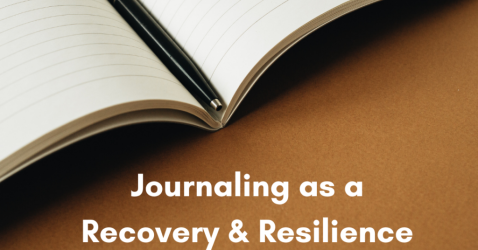What Self-care Techniques Can Help With Improving Sleep Quality?
In today’s fast-paced world, where stress and distractions are abundant, getting a good night’s sleep has become more crucial than ever. But what if there was a way to enhance the quality of your sleep by practicing self-care techniques that are often overlooked? This article explores various methods that can help improve your sleep quality, from establishing a bedtime routine to indulging in relaxing activities before hitting the hay. So, if you find yourself tossing and turning at night, looking for ways to foster a peaceful slumber, look no further than these self-care techniques that are specifically tailored to enhance your sleep experience. Getting a good night’s sleep is essential for not only your physical health but also your mental and emotional well-being. If you’ve been struggling with getting enough quality sleep, implementing self-care techniques can make a significant difference. With that in mind, let’s take a closer look at some effective strategies you can use to establish a consistent sleep schedule and create a restful sleep environment.
Establishing a Consistent Sleep Schedule
Set a regular bedtime
Setting a regular bedtime is crucial for training your body to recognize when it’s time to sleep. Try to go to bed at the same time every night, even on weekends. Consistency reinforces your body’s internal clock and helps regulate your sleep-wake cycle. It may take some time to adjust, but sticking to a consistent bedtime can lead to improved sleep quality over time.
Wake up at the same time every day
Just as setting a regular bedtime is important, waking up at the same time every day is equally beneficial. Consistency in wake-up time helps regulate your body’s internal clock and ensures you get enough sleep. Avoid hitting the snooze button excessively, as it can disrupt your sleep patterns and leave you feeling groggy.
Avoid napping late in the day
While a short power nap can revitalize your energy levels, napping late in the day can interfere with your ability to fall asleep at night. If you’re having trouble sleeping, it’s best to avoid napping altogether or limit it to the early afternoon. Keeping your napping habits in check can prevent disruption to your sleep schedule.
Creating a Restful Sleep Environment
Keep the bedroom dark and quiet
Creating a dark and quiet sleeping environment is essential for promoting uninterrupted sleep. Invest in blackout curtains or blinds to block out any external light sources that may disturb your sleep. Try using earplugs or a white noise machine to drown out noises from the surrounding environment, ensuring a peaceful atmosphere conducive to a good night’s rest.
Maintain a comfortable temperature
The temperature of your bedroom plays a crucial role in your ability to fall asleep and stay asleep. Aim for a cool, comfortable temperature between 60 to 67 degrees Fahrenheit (15 to 19 degrees Celsius). Experiment with different bedding materials, such as breathable cotton or moisture-wicking fabrics, to keep you cool and comfortable throughout the night.
Invest in a supportive mattress and pillows
Having the right mattress and pillows can make a world of difference in your sleep quality. Invest in a supportive mattress that suits your preferences and spinal alignment. Similarly, choose pillows that provide adequate support for your neck and head. Remember, a comfortable and supportive sleep surface can alleviate discomfort and help you achieve a restful sleep.
Implementing Relaxation Techniques
Practice deep breathing exercises
Deep breathing exercises are an effective way to relax your mind and body before bed. Find a comfortable position, close your eyes, and take slow, deep breaths. Focus on drawing breaths from your diaphragm rather than shallow chest breaths. This simple technique can help calm your nervous system, promoting a sense of relaxation and preparing your body for sleep.
Engage in progressive muscle relaxation
Progressive muscle relaxation is a technique that involves systematically tensing and then releasing different muscle groups in your body. Start from your toes and work your way up to your head. As you tense each muscle group, hold it for a few seconds before releasing the tension. This practice helps relieve physical tension and promotes a state of relaxation conducive to sleep.
Try meditation or mindfulness
Meditation and mindfulness practices can help quiet your mind and induce a sense of calm before bed. Find a quiet spot, sit comfortably, and focus your attention on your breath or a calming image. Allow any thoughts or distractions to pass without judgment. Regular meditation or mindfulness practice can train your mind to let go of racing thoughts and worries, paving the way for a more peaceful and restorative sleep.
Limiting Exposure to Electronic Devices
Avoid screens before bedtime
The blue light emitted by electronic devices, such as smartphones, tablets, and computers, can interfere with your natural sleep-wake cycle. Avoid using these devices for at least an hour before bed to allow your brain to prepare for sleep. Instead, engage in relaxing activities like reading a book, listening to soothing music, or taking a warm bath to unwind before bed.
Use blue light filters or glasses
If you must use electronic devices close to bedtime, consider using blue light filters or wearing blue light-blocking glasses. These filters and glasses help reduce the amount of blue light exposure, making it easier for your body to transition into sleep mode. Many devices also have built-in settings that allow you to activate a “night mode” or adjust the color temperature to be warmer, further reducing blue light emission.
Keep electronic devices out of the bedroom
To create a sleep-friendly environment, it’s best to keep electronic devices out of the bedroom altogether. The presence of these devices can be distracting and can disrupt your sleep patterns. Charge your devices outside of the bedroom or in a separate room to minimize their impact on your sleep quality.
Engaging in Regular Physical Activity
Incorporate exercise into daily routine
Engaging in regular physical activity can significantly improve sleep quality. Aim for at least 30 minutes of moderate exercise most days of the week. Choose activities that you enjoy, such as walking, jogging, cycling, or dancing. Exercise helps reduce stress, boost your mood, and regulate your sleep patterns, ensuring a more restful and refreshing sleep.
Avoid vigorous exercise close to bedtime
While exercise is beneficial for sleep, it’s important to time it right. Avoid engaging in vigorous exercise close to bedtime, as it can increase your heart rate and make it difficult to wind down for sleep. Try to finish your exercise routine at least three hours before bed to allow your body temperature to cool down and your heart rate to return to normal.
Experiment with relaxing exercises like yoga
Incorporating relaxing exercises like yoga or gentle stretching can help prepare your body for sleep. These activities promote flexibility, balance, and deep relaxation. Try incorporating a short yoga sequence or gentle stretching routine into your bedtime routine. Not only will it help you unwind physically, but it can also calm your mind and enhance your sleep quality.
Managing Stress Levels
Practice stress-reducing techniques
Stress and anxiety often disrupt sleep patterns and make it difficult to fall asleep or stay asleep. Finding effective ways to manage and reduce stress is crucial for improving sleep quality. Explore stress-reducing techniques such as deep breathing, mindfulness, meditation, or progressive muscle relaxation. Additionally, consider activities like engaging in hobbies, listening to calming music, or practicing gratitude to promote a sense of overall well-being and relaxation.
Journaling or expressive writing
Putting pen to paper can be a powerful tool for managing stress and improving sleep quality. Consider keeping a sleep journal or engaging in expressive writing before bed. Release your thoughts, worries, or any lingering emotions onto the page. This practice can help alleviate mental clutter and provide a sense of closure before sleep, allowing your mind to relax and prepare for a restful night.
Seek social support when needed
Sometimes, simply talking to a trusted friend or family member can provide the emotional support needed to manage stress and improve sleep. Reach out to loved ones when you’re feeling overwhelmed and share your experiences. Carrying a heavy emotional burden can keep your mind active at night, making it difficult to fall asleep. Remember, it’s okay to ask for help and lean on others during challenging times.
Establishing a Bedtime Routine
Engage in calming activities before bed
Creating a bedtime routine that incorporates calming activities can send signals to your body and mind that it’s time to wind down. Consider activities like reading a book, taking a warm bath, practicing relaxation techniques, or listening to soothing music. Consistency is key, so try to engage in these activities at the same time each night to establish a routine that prepares your body for sleep.
Avoid stimulating activities or work
Stimulating activities or work-related tasks can increase mental stimulation and make it difficult to relax before bed. Avoid engaging in activities that require intense concentration or evoke stress in the evening hours. Instead, focus on quiet, relaxing activities that promote a state of tranquility and pave the way for a restful sleep.
Use a sleep-friendly routine to wind down
Developing a sleep-friendly routine involves creating a series of calming rituals that signal to your body and mind that it’s time to sleep. Consider incorporating activities such as dimming the lights, sipping on a caffeine-free herbal tea, practicing relaxation techniques, or engaging in light stretching. By consistently following this routine, you can condition your body to relax and prepare for a deep and restorative night’s sleep.
Monitoring and Limiting Consumption of Stimulants
Reduce intake of caffeine
Caffeine, found in coffee, tea, chocolate, and some sodas, is a stimulant that can interfere with your sleep. Limit your caffeine intake, especially in the afternoon and evening hours. Opt for caffeine-free alternatives or herbal teas that promote relaxation, such as chamomile or peppermint, to ensure that caffeine doesn’t disrupt your sleep quality.
Avoid nicotine and alcohol
Nicotine and alcohol are substances that can have a negative impact on your sleep quality. Nicotine is a stimulant that can make it difficult to fall asleep, while alcohol may initially make you drowsy but can disrupt your sleep cycle throughout the night. Ideally, avoid nicotine and limit your alcohol consumption, particularly close to bedtime, to provide your body with the best chance for a restful sleep.
Read food and drink labels for hidden stimulants
Some foods and drinks may contain hidden stimulants that can interfere with your sleep quality. Check food and drink labels for ingredients like guarana, taurine, or high levels of sugar. These substances can act as stimulants and disrupt your ability to fall asleep. Opt for snacks and beverages that promote relaxation, such as foods rich in magnesium or herbal teas that aid in sleep.
Improving Sleep Hygiene
Create a comfortable sleep environment
Sleep hygiene refers to the practices and habits that contribute to a good night’s sleep. Creating a comfortable sleep environment is an important aspect of sleep hygiene. Consider investing in a high-quality mattress, pillows, and bedding that suit your preferences. Ensure that your bedroom is clean, clutter-free, and designed to provide optimal conditions for sleep.
Establish a consistent wind-down routine
In addition to a bedtime routine, establishing a consistent wind-down routine can help prepare your body and mind for sleep. Wind-down activities may include dimming the lights, engaging in relaxation techniques, listening to calming music, or reading a book. By consistently following this routine, you signal to your body that it’s time to unwind and transition into a restful sleep.
Ensure adequate exposure to natural light during the day
Exposure to natural light during the day helps regulate your circadian rhythm, the internal clock that controls your sleep-wake cycle. Make an effort to spend time outdoors and expose yourself to natural daylight. Open your curtains or blinds to let natural light into your home during the day. This exposure to light can help regulate your sleep patterns and promote better sleep quality at night.
Considering Natural Remedies
Herbal supplements like valerian root or chamomile
If you’re looking for natural remedies to aid in improving sleep quality, herbal supplements like valerian root or chamomile may be worth considering. Valerian root has been used for centuries as a natural sleep aid, while chamomile has calming properties that can promote relaxation. Consult with a healthcare professional to determine if these supplements are suitable for you.
Aromatherapy with lavender or bergamot
Aromatherapy is the practice of using essential oils to promote relaxation and improve sleep quality. Lavender and bergamot essential oils are known for their calming and soothing properties. Use a diffuser or add a few drops to a warm bath before bed to create a peaceful atmosphere and promote a restful night’s sleep.
Foods that promote sleep, such as tart cherry juice
Certain foods can support better sleep by increasing the production of sleep-promoting hormones or providing nutrients that aid in relaxation. Tart cherry juice, for example, contains melatonin, a hormone that regulates sleep. Consuming a small amount of tart cherry juice before bed may help improve sleep quality. Other foods that can promote sleep include bananas, almonds, walnuts, and herbal teas like chamomile or peppermint.
By implementing self-care techniques to improve sleep quality, you can create a positive sleep environment and establish healthy habits that promote restful nights. Remember, consistency is key, so be patient and give yourself time to adjust to these new practices. If sleep issues persist, don’t hesitate to reach out to a healthcare professional for further assistance. Here’s to peaceful nights and rejuvenating sleep!

















